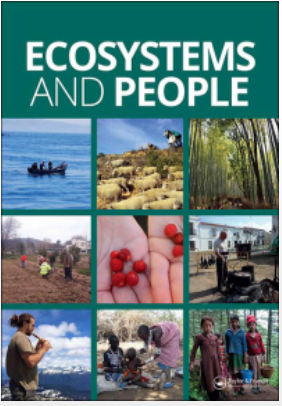印度跨喜马拉雅地区农牧社区维持生态系统服务的土著治理结构
IF 3.7
Q1 Agricultural and Biological Sciences
引用次数: 3
摘要
摘要全球陆地生物多样性大部分发生在土著土地上,而这些土地上的生物多样性下降相对较慢。然而,对生物多样性和生态系统服务的土著治理系统的深入了解仍然是一个关键的知识差距。我们使用社会生态系统框架研究了印度跨喜马拉雅山脉Kibber村一个土著社区对生态系统服务的治理。围绕从公共牧场清除植物生物量,我们通过与社区成员进行深入的焦点和协商小组讨论,确定了影响地方治理的主要因素。尽管种姓和性别不平等,我们发现Kibber有一个运作良好、复杂、相对民主和包容的系统,村里的所有家庭都参与了与ES治理相关的决策。强大的信息共享、监测、冲突解决和自组织系统发挥了重要作用。我们发现,由神谕维持的制度记忆在维持治理结构方面发挥着至关重要的作用。我们的工作强调了土著系统对生态系统服务治理的潜在韧性和重要性。本文章由计算机程序翻译,如有差异,请以英文原文为准。
Indigenous governance structures for maintaining an ecosystem service in an agro-pastoral community in the Indian Trans Himalaya
ABSTRACT The majority of the global terrestrial biodiversity occurs on indigenous lands, and biodiversity decline on these lands is relatively slower. Yet, robust understanding of indigenous governance systems for biodiversity and ecosystem services remains a key knowledge gap. We used the socio-ecological systems framework to study the governance of ecosystem services (ES) by an indigenous community in the Village of Kibber in the Trans-Himalayan Mountains of India. Focusing on plant-biomass removal from communal pastures, we identified the main factors shaping local governance using in-depth focal and deliberative group discussions with community members. Notwithstanding inequities of caste and gender, we found that Kibber had a well-functioning, complex, relatively democratic and inclusive system, with all households of the village involved in decision-making related to ES governance. Robust systems of information sharing, monitoring, conflict resolution, and self-organization played an important role. We found the role of institutional memory sustained by the oracle to be critical in maintaining governance structures. Our work underscores the potential resilience and importance of indigenous systems for the governance of ecosystem services.
求助全文
通过发布文献求助,成功后即可免费获取论文全文。
去求助
来源期刊

Ecosystems and People
Agricultural and Biological Sciences-Ecology, Evolution, Behavior and Systematics
CiteScore
7.80
自引率
11.30%
发文量
40
审稿时长
42 weeks
期刊介绍:
Ecosystems and People is an interdisciplinary journal that addresses how biodiversity and ecosystems underpin human quality of life, and how societal activities and preferences drive changes in ecosystems. Research published in Ecosystems and People addresses human-nature relationships and social-ecological systems in a broad sense. This embraces research on biodiversity, ecosystem services, their contributions to quality of life, implications for equity and justice, and the diverse and rich ways in which people relate to nature.
 求助内容:
求助内容: 应助结果提醒方式:
应助结果提醒方式:


